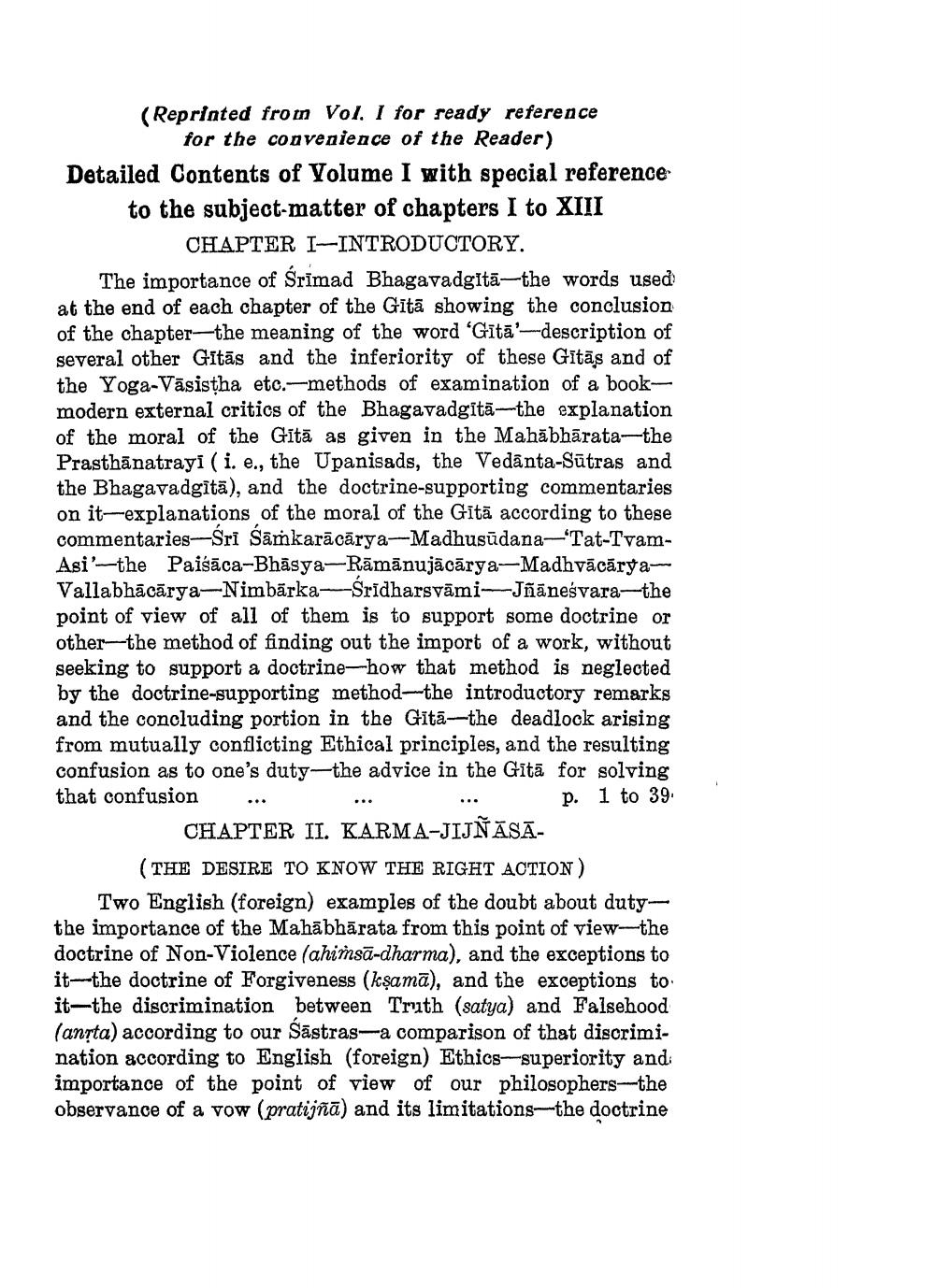________________
(Reprinted from Vol. I for ready reference for the convenience of the Reader)
Detailed Contents of Volume I with special reference to the subject-matter of chapters I to XIII
CHAPTER I-INTRODUCTORY.
The importance of Srimad Bhagavadgita-the words used at the end of each chapter of the Gita showing the conclusion of the chapter-the meaning of the word 'Gita'-description of several other Gitas and the inferiority of these Gitas and of the Yoga-Vasistha etc.-methods of examination of a bookmodern external critics of the Bhagavadgita-the explanation of the moral of the Gita as given in the Mahabharata-the Prasthanatrayi (i. e., the Upanisads, the Vedanta-Sutras and the Bhagavadgita), and the doctrine-supporting commentaries on it-explanations of the moral of the Gita according to these commentaries-Śrī Śāṁkarācārya-Madhusudana-Tat-TvamAsi' the Paisaca-Bhasya-Rāmānujācārya-MadhvācāryaVallabhācārya-Nimbārka-Śrīdharsvāmi―Jñānesvara-the point of view of all of them is to support some doctrine or other-the method of finding out the import of a work, without seeking to support a doctrine-how that method is neglected by the doctrine-supporting method-the introductory remarks and the concluding portion in the Gita-the deadlock arising from mutually conflicting Ethical principles, and the resulting confusion as to one's duty-the advice in the Gita for solving that confusion p. 1 to 39.
CHAPTER II. KARMA-JIJÑASA
(THE DESIRE TO KNOW THE RIGHT ACTION
Two English (foreign) examples of the doubt about dutythe importance of the Mahabharata from this point of view-the doctrine of Non-Violence (ahimsa-dharma), and the exceptions to it-the doctrine of Forgiveness (kṣamā), and the exceptions to it-the discrimination between Truth (satya) and Falsehood (anṛta) according to our Sastras-a comparison of that discrimination according to English (foreign) Ethics-superiority and importance of the point of view of our philosophers-the observance of a vow (pratijñā) and its limitations-the doctrine




